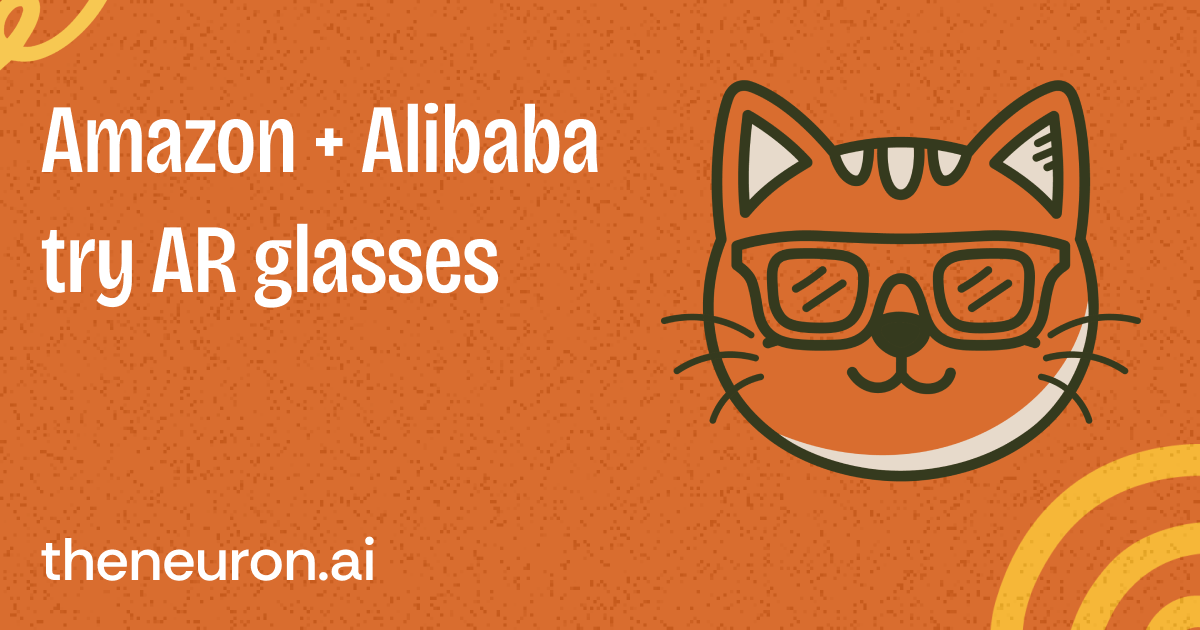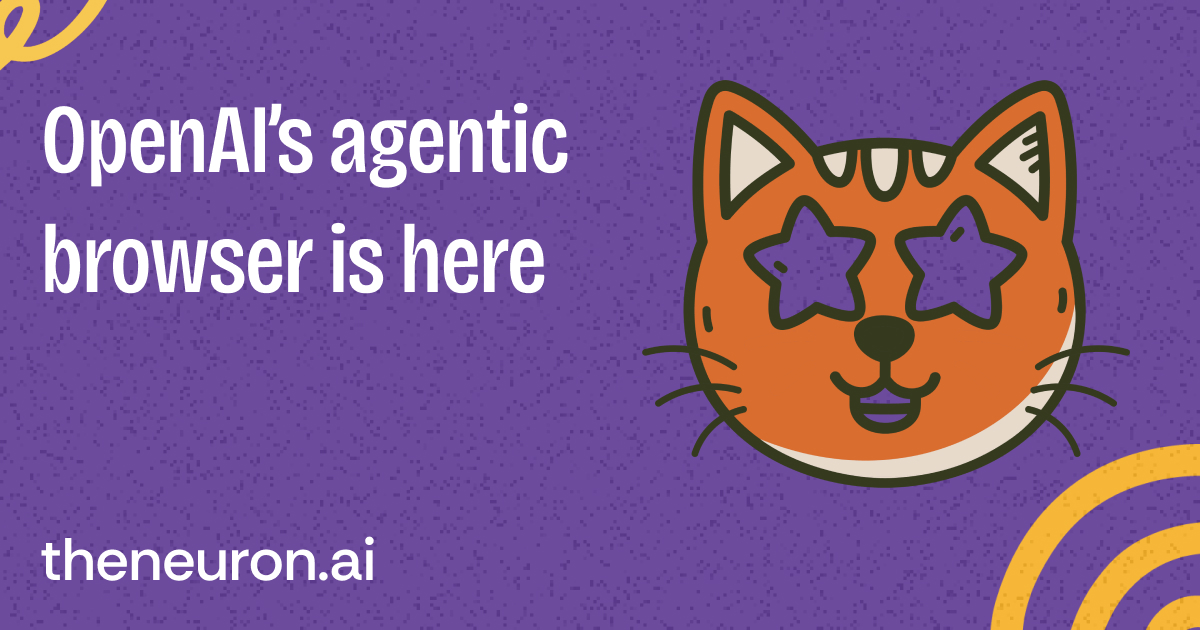Welcome, humans.
On Tuesday, we told you how Anthropic and Google were dating (Flirting? Situation-ing? You tell us). Well, cuffing season must be in full swing because it looks like they just made it official!
On Thursday, Anthropic and Google announced their cloud partnership, giving Claude access to up to 1M of Google's custom tensor processing units (TPUs). TPUs are the equivalent of NVIDIA’s AI chips, but made internally, so, y’know, they don’t have to pay NVIDIA billions (don’t get me wrong, they’re doing that, too). Interestingly, we’re also hearing that NVIDIA had to lock things down with OpenAI to avoid SamA from hitching his wagon to Google, too. It’s like Love (GPU) Island out here, y’all!
And in true reality TV fashion, it also sounds like Amazon and Google tip NVIDIA CEO Jensen Huang off before they announce anything new about their chips to avoid any made for TV drama. NVIDIA is definitely Queen Bee of the beach.
Anyway, this deal is worth tens of billions of dollars and will deliver over a gigawatt of AI compute capacity by 2026, which means much faster training cycles and the ability to experiment with larger model architectures more frequently. All that = better AI.
Fun fact: A 1-gigawatt data center costs around $50B to build, with $35B of that going to chips alone. That's roughly the GDP of Iceland. Good thing Anthropic's splitting the bill with Google. Coupling up has some serious perks!
Here’s what happened in AI today:
- Microsoft relaunched Edge with AI superpowers.
- OpenAI acquired Sky, an AI interface for Mac.
- Claude's automatic memory is finally rolling out to Pro users.
- A teen with a Doritos bag was falsely flagged by an AI gun detector.

Microsoft Edge's AI Relaunch vs OpenAI's Atlas: The Agentic Browser Showdown
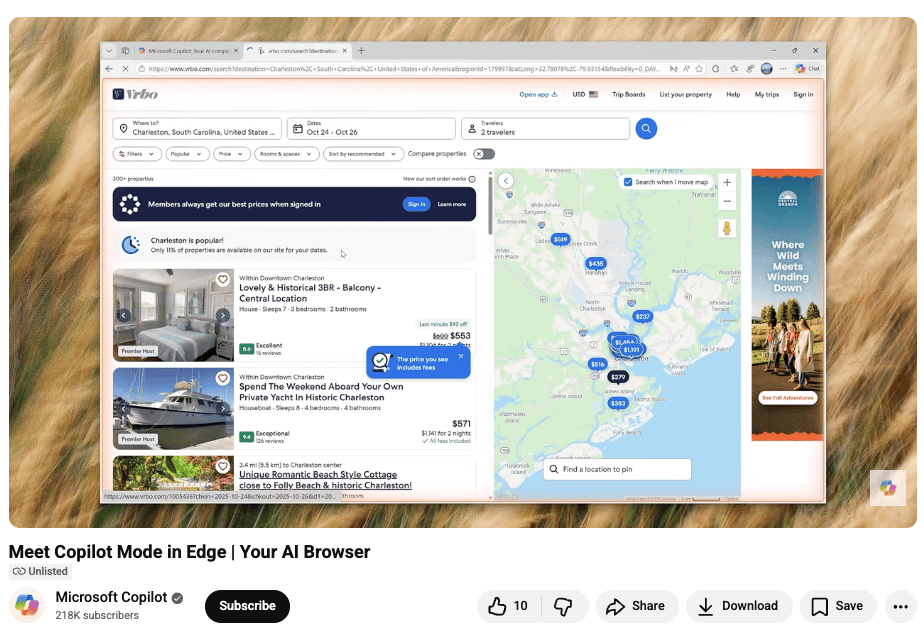
DEEP DIVE: Let’s dig into Phase 2 of the AI browser wars, shall we?
Well, somebody must’ve fired the opening shot of the AI browser wars, because we’re on and poppin’: Microsoft just relaunched Copilot Mode in Edge as what appears to be its name-brand version of OpenAI’s Atlas.
As TechCrunch reported, Copilot in Edge has actually been around since July, when it rolled out with basic features like a search bar on new tabs and natural voice navigation. But it was opt-in and didn't quite grab attention.
What's new in the relaunch: With your permission, Copilot can…
- Ride-along: The assistant follows you as you browse, reasoning over your tabs.
- Chart journeys: The AI traces connections between your open tabs to understand context and summarize + compare information.
- Take actions: Copilot can now fill out forms and book hotels directly.
The timing is wild. This announcement came just two days after OpenAI showed off its nearly identical Atlas browser. Both products look remarkably similar; clean interfaces, chatbot windows integrated into the new tab screen, and assistants that can see and act on your behalf. We’ll take the weekend and try them both and report back.
Here's a fun fact you probably missed: Google has been quietly releasing AI features in Chrome too. You just haven't noticed. Or worse, you don't know about them, or simply don't use them at all (guilty as charged; we never touch Gemini in Chrome because TBH, we don't trust it yet; we got burned by the G Suite Gemini integration let down… AI Studio or the Gemini app is vastly superior).
Why this matters: This all started with the Dia Browser and Perplexity's Comet browser, which introduced full agentic AI capabilities that could navigate websites, fill forms, and execute tasks on your behalf. Now everyone's racing to build intelligence into your browser so you can stop copying and pasting context into your chat windows.
But here's the real question: How will agentic AI actually change how we consume content? Will browsers become pure chat interfaces that replace traditional web reading? Or will “anchor” pages become more valuable because you can process more info in one place, with users staying longer to chat with AI about the content on the page itself, creating monetizable dwell time for “information hub” style pages?
Our take: Most likely? Browser providers become the new gatekeepers of banner ads, with higher subscription tiers for no ads (hello, streaming model) while free tiers get ad-blasted. Publishers and advertisers will then work through the browser as new middlemen vs Meta & Google’s duopoly… with all the costs that come with.

FROM OUR PARTNERS
Try the world’s fastest AI code editor!
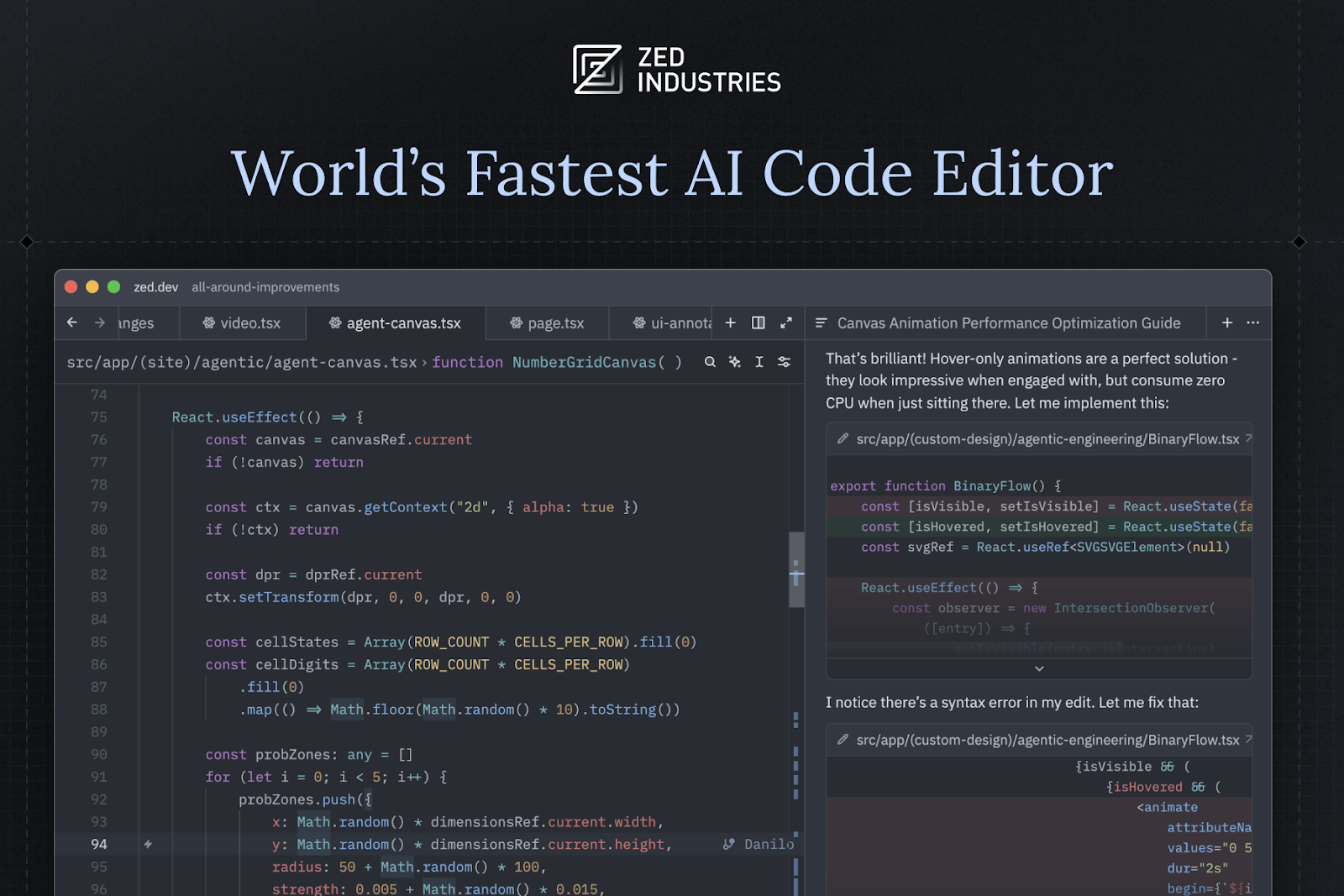
Use the agent of your choice inside a Zed, a code editor built for speed and flow.
- Chat with context. Zed pulls the right files, diffs, and errors automatically, so you can act and iterate without copy/paste.
- Work with agents you already dig. From GPT-5 to Claude Haiku 4.5, Zed offers the latest models from top providers. Bring your own keys, or use our hosted options.
- Private by default. Zed doesn't harvest your data for training purposes (or any other purpose).
Choose your agent, plug in your keys, and get back to building.

Prompt Tip of the Day
Want ChatGPT to actually teach you something instead of just dumping information? This viral prompt from @yanabantai turns ChatGPT into a personal tutor:

The genius is in the structure: It doesn't just ask for explanations—it creates a recursive learning loop with Socratic questioning, exercises, and checkpoints. ChatGPT asks if you're ready to move on. If you say no, it rephrases and provides more examples until you get it.
The key elements that make this work:
- Progressive structure: Starts with fundamentals, builds to advanced concepts.
- Active learning: Socratic questions and thought experiments force you to engage.
- Adaptive pacing: Moves at your speed, not ChatGPT's default firehose mode.
- Real application: Ends by connecting what you learned to actual use cases.
Our favorite insight: The secret sauce is "recursive and personalized." Most prompts tell AI what to say. This one tells AI how to teach—and that makes all the difference between reading a textbook and having a conversation with an expert who actually cares if you understand.

Treats to Try
*Asterisk = from our partners (only the first one!). Advertise in The Neuron here.
- *Heads up, IT providers: Shure IntelliMix Room Kits deliver flawless meeting audio across Teams, Zoom, and Google Meet—unlock new AV revenue without the complexity.
- Company knowledge from OpenAI searches across your work apps (Slack, Google Drive, Gmail, GitHub) and pulls together information to answer business questions—like creating a client briefing from recent Slack messages, emails, call notes, and support tickets (try it here, docs here).
- Vercel Agent’s investigations automatically detects issues in your app, conducts root cause analysis, and provides actionable remediation plans—saving hours of manual incident response with out-of-the-box anomaly alerts.
- Claude Skills Hub is a marketplace with 26+ reusable task packages that Claude automatically applies for complex workflows like spreadsheets or PDFs—free to browse.
- Xano enables visual backend building with instant API generation and managed databases without coding knowledge (raised $5M).
- Plexe turns your data into custom ML models by simply describing what you want in plain language, then deploys production-ready models with full transparency on performance metrics—free to try.

Around the Horn
- Claude's new automatic memory feature which remembers your work context across chats, shows you exactly what it stores with full editing control, keeps separate memories for each project, and lets you import/export from ChatGPT or Gemini is rolling out to Pro and Max users after being Enterprise or Team-only since September (how to import / export memories).
- OpenAI acquired Sky, an AI-powered interface for Mac that floats over your desktop to help you think and create — built by the same team that created Apple's Shortcuts.
- Microsoft also published its Copilot Fall Release with 12 new features focused on making AI more personal, collaborative, and human-centered, including group chat capabilities, long-term memory, health features, and Mico (a.k.a Clippy 2.0).
- Instagram launched AI editing tools directly in Stories, letting users add, remove, or change things in photos and videos with text prompts.
- GM announced plans to introduce a Level 3 "eyes-off, hands-off" automated driving system in 2028, debuting on the Cadillac Escalade IQ before expanding to other models.
- Google expanded Earth AI with Geospatial Reasoning powered by Gemini, connecting weather forecasts, satellite imagery, and population maps to help organizations respond to disasters and environmental crises.
- Today in Bots Behaving Badly: An AI gun detection system falsely flagged a Doritos bag as a firearm, which led to a 16 year old getting SWATed by multiple police officers (seemingly, no one was harmed, but wtf AI?!).

FROM OUR PARTNERS
Averi - The AI Marketing Workspace
Introducing Averi: The AI Marketing Workspace
Averi is where complete marketing workflows happen - strategize with marketing-trained AI, create and edit content in one canvas, collaborate with top experts, and save everything in a library that makes every project smarter. It's your marketing workspace. Your way.

Intelligent Insights
- Noah Smith argues AI's circular deals (NVIDIA investing in OpenAI, who buys Nvidia chips) aren't the “round-tripping” fraud some fear, but rather vendor financing that helps cash-strapped AI companies scale faster…though it does mean everyone's fate is now tied to AI's success.
- Wonder Studios' VFX automation reveals how AI can replace dozens of manual effects artists for standard shots.
- Fascinating research tested major AI models on implicit bias by asking them to value human lives across race, gender, and nationality, finding that only Grok 4 Fast is truly egalitarian (wild, we know).
- McKinsey predicts “agentic commerce” (AI agents shopping on your behalf) could reach $1 trillion in the US by 2030 as AI anticipates needs, negotiates deals, and executes purchases independently, forcing businesses to either launch their own agents or risk becoming obsolete.

A Cat’s Commentary
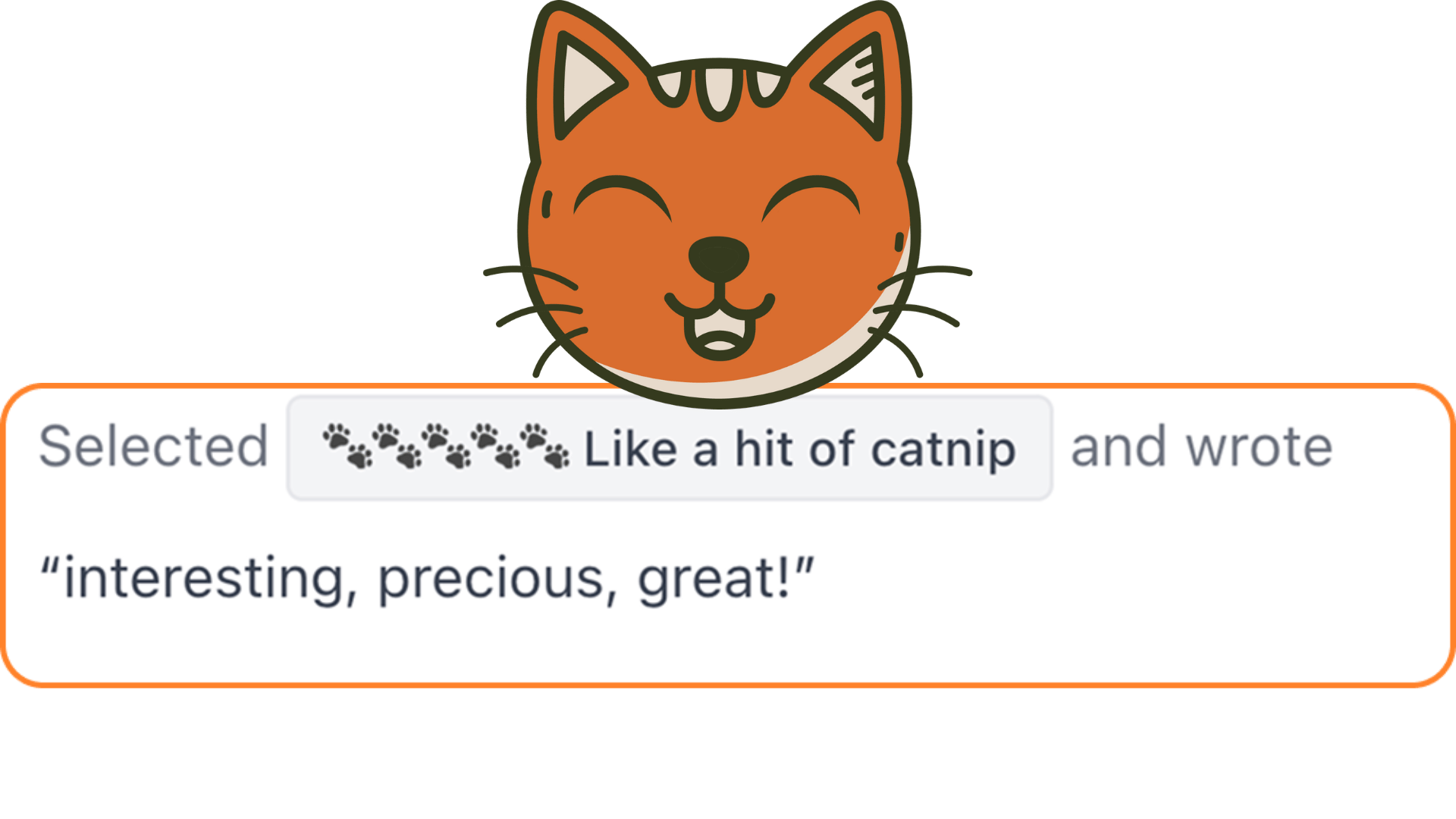

.jpg)

.jpg)






